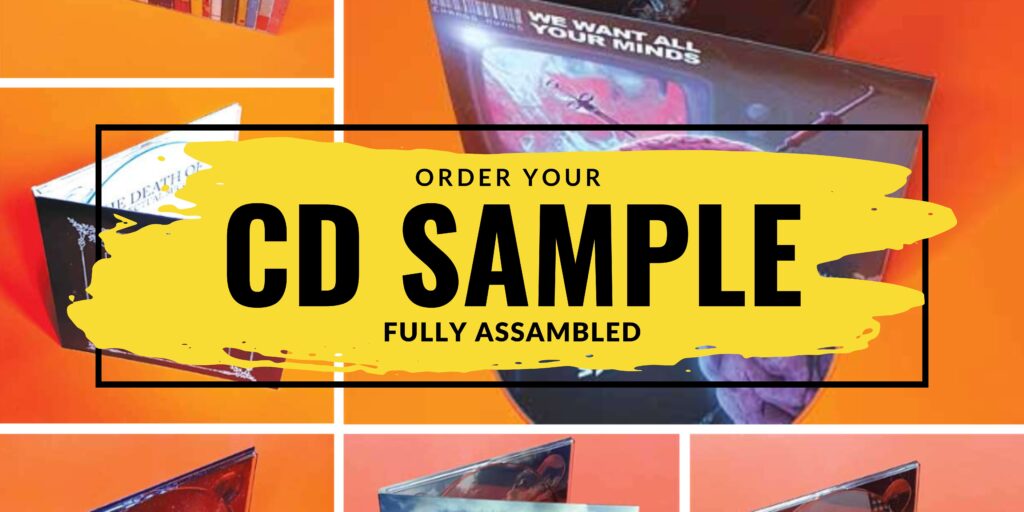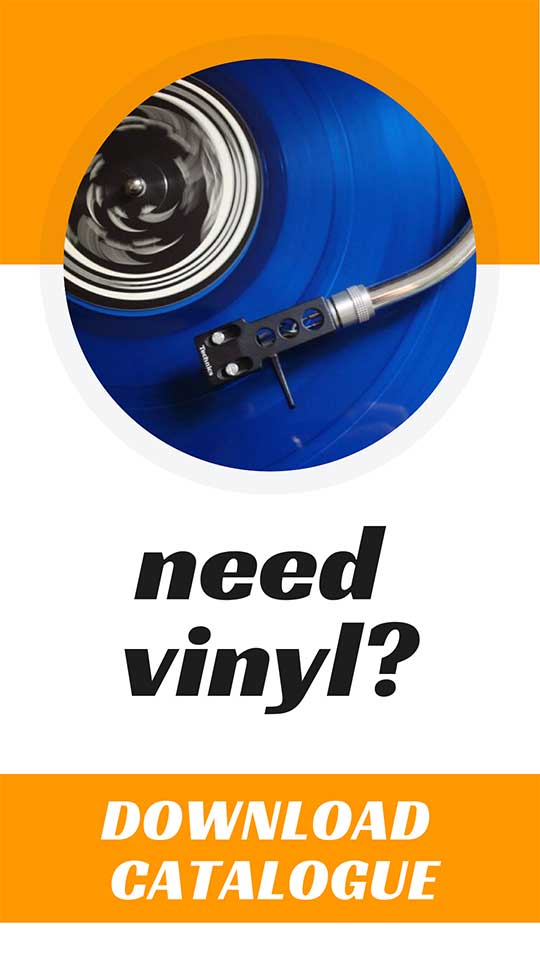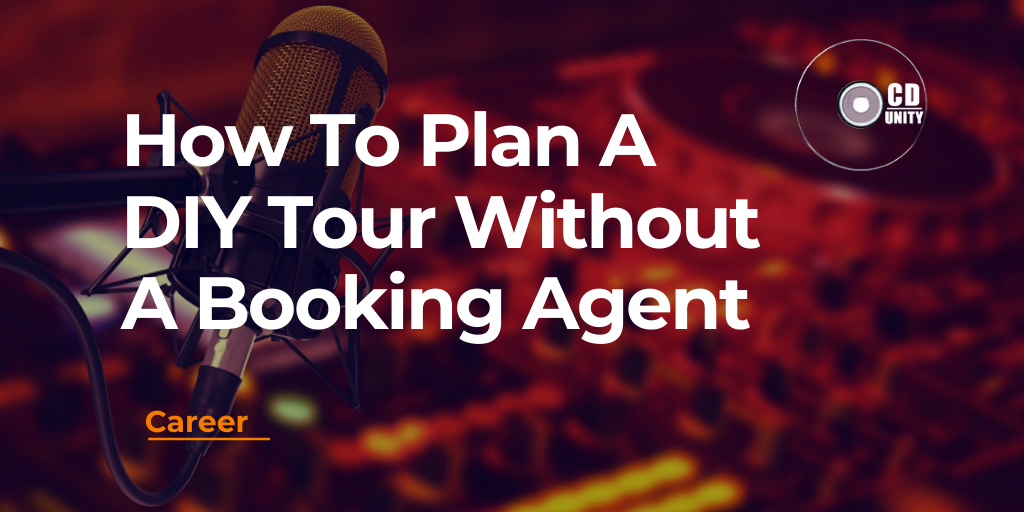
How To Plan A DIY Tour Without A Booking Agent
Booking a music tour without a booking agent might seem tough for an independent artist planning live shows. Many musicians are now organising successful tours themselves, picking venues, reaching out to promoters, and managing travel plans independently.
This guide offers practical steps on how bands or artists can book gigs directly with venue owners and local promoters to plan their first tour smoothly—without an agent. Keep reading to learn simple ways any musician can create a solid DIY tour plan from start to finish.
Key Takeaways
- Set clear and measurable goals early, like performing 10 shows across three cities in two weeks. This helps to manage budgets, choose suitable venues and track your progress.
- Plan a detailed itinerary at least three months before touring. Choose venues carefully by checking local events, seasonal factors (e.g., student terms or festival periods) and matching them to your music style.
- Reach out clearly to venue promoters through short booking emails highlighting genre, experience and suggested dates; include direct links for easy listening.
- Team up with local bands and reliable promoters at each tour stop to boost audience turnout. Avoid “pay-to-play” agreements; instead create fair deals rewarding strong attendance.
- Control expenses by budgeting travel costs (using tools like Skyscanner), finding affordable accommodation online (Airbnb or Hostelworld), selling creative merchandise online or locally, and using social media actively for free promotion.
Setting Clear Goals for Your Tour
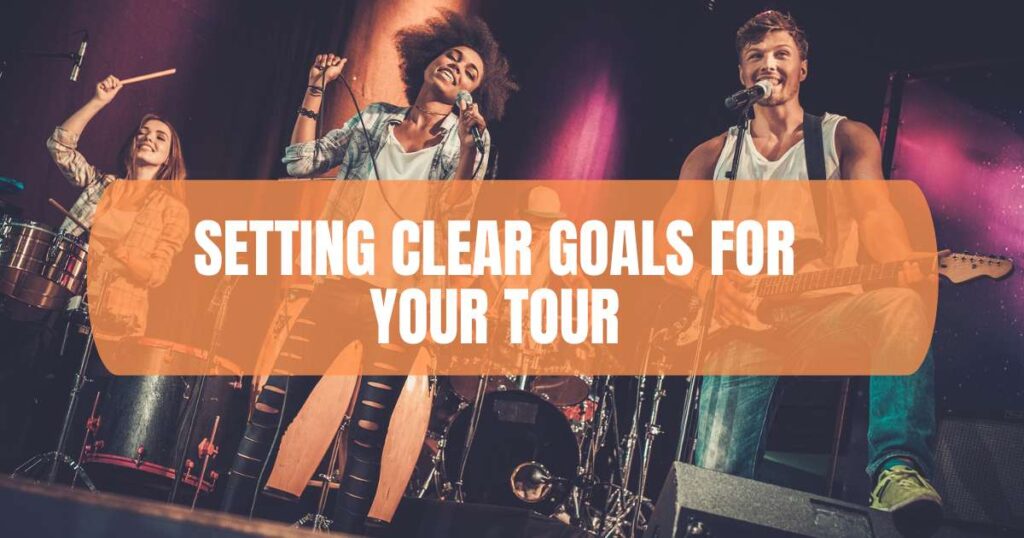
To plan a successful tour without a booking agency, an artist or band needs clear goals. Clear aims help musicians decide the type of shows they want—small local gigs, festival dates or larger venues—as well as manage their tour budget and music career growth.
Artists should set defined targets early: whether it’s selling tickets, increasing merchandise sales at live performances, building connections with industry professionals or expanding their overall fanbase.
An achievable goal might be playing 10 successful shows in three cities over two weeks or growing online followers by 20 per cent after the tour. Having these measurable targets allows musicians to check progress clearly while planning an itinerary, contacting promoters and concert venues and putting together marketing plans for local shows.
Setting clear goals is the first step in turning the invisible into the visible. – Tony Robbins
Mapping Out Your Itinerary

Choosing the right locations and dates
Selecting suitable tour dates and locations helps musicians maximise ticket sales. Musicians must plan at least three months in advance to secure good venues and build local interest.
It makes sense to choose venues with live music scenes that fit the artist’s type of music, ensuring the right audience comes through the door. Checking city calendars for clashes—or helpful overlaps—with music festivals or other live gigs will boost attendance.
Weekends typically draw bigger crowds than weekdays, but weekday shows can still work if promoted well by local radio stations, concert promoters or online through social media.
Seasonal factors also play a part: touring sunny coastal towns in summer tends to attract more fans looking for evening entertainment; cities hosting large student populations perform better during term times rather than holidays when many leave town.
Artists should look into past ticket sales from nearby concerts within their genre—to gauge how successful performances were at similar venues last time bands hit the road there.
Taking such steps ensures artists book a tour that aligns closely with demand levels—without overspending on travel costs or risking half-empty rooms on show night.
Planning free days for rest and flexibility
Planning free days in the overall tour schedule helps musicians avoid burnout during live music events. A packed itinerary might look productive, but it can lead an artist or band to exhaustion and lower performance quality.
Free days provide rest and flexibility—allowing space for last-minute gigs, interviews with local promoters, collaborating with local musicians, selling merchandise at pop-up shops, exploring new cities or simply relaxing after travel expenses take their toll.
Musicians who add these essential breaks into their operating costs find they feel refreshed onstage and better able to handle any unexpected changes that arise while going on tour.
Researching and Contacting Venues
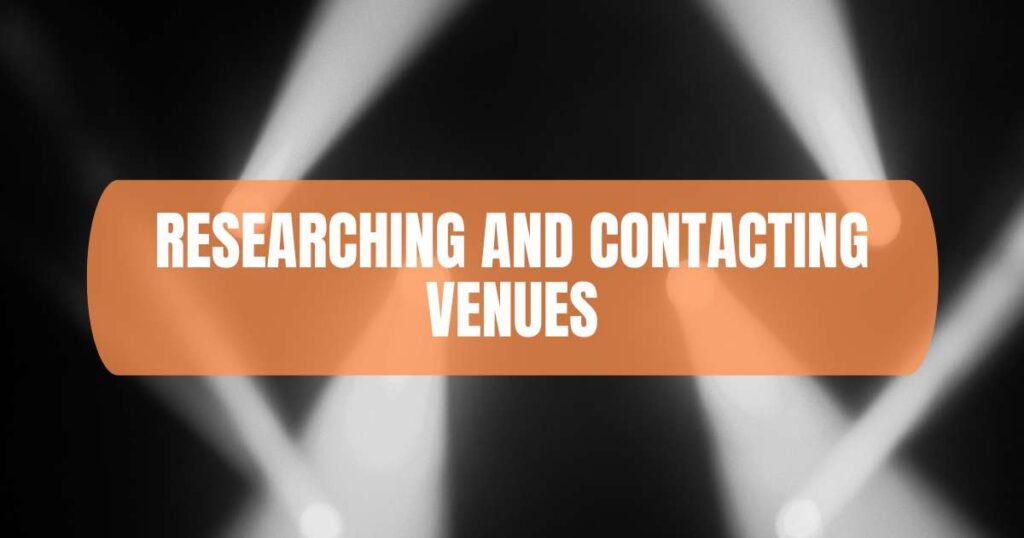
Identifying suitable venues
Suitable venues for a DIY tour depend largely on the band or artist style and audience size. Small acts just starting in the music business should reach out to local bars, cafes and community spaces, as these are often open to hosting shows without requiring large fees or strict performance contracts.
Sites like Venuefinder.com or Gigmit can help musicians pinpoint locations welcoming new music acts; from there, they can explore venue websites and social media pages to check previous performances.
Artists planning a tour must also consider key practical points—they need clear payment methods agreed upfront and clarity about who will sell tickets and handle promotional activities.
Good venues have reliable teams able to support promotional efforts before each gig, helping maximise attendance. To find those reliable partners, bands might speak with other touring musicians or connect through Facebook groups dedicated to building networks between venues and promoters.
Reaching out with concise booking emails
A concise booking email helps musicians reach out to venues with clarity and purpose. Before sending an email, they must research the venue’s style, capacity and audience type. Musicians should keep emails short—just a few clear lines about their music genre, show experience and proposed tour dates.
A simple subject like ‘Booking Request: [Band Name] on [Date]’ works best. Including links to your music makes it easy for bookers to listen quickly; they often have limited time.
Once a musician confirms the message includes key details clearly stated upfront—such as whether they’ll rent a van or need support with reliable transportation—they can send an email in confidence that it’s effective, polite and professional.
Keeping messages brief shows respect for the booker’s busy schedule and increases chances of replies—even if already booked or unavailable at first approach—to provide valuable feedback or suggest another date later in tour planning stages.
Collaborating with Local Bands and Promoters
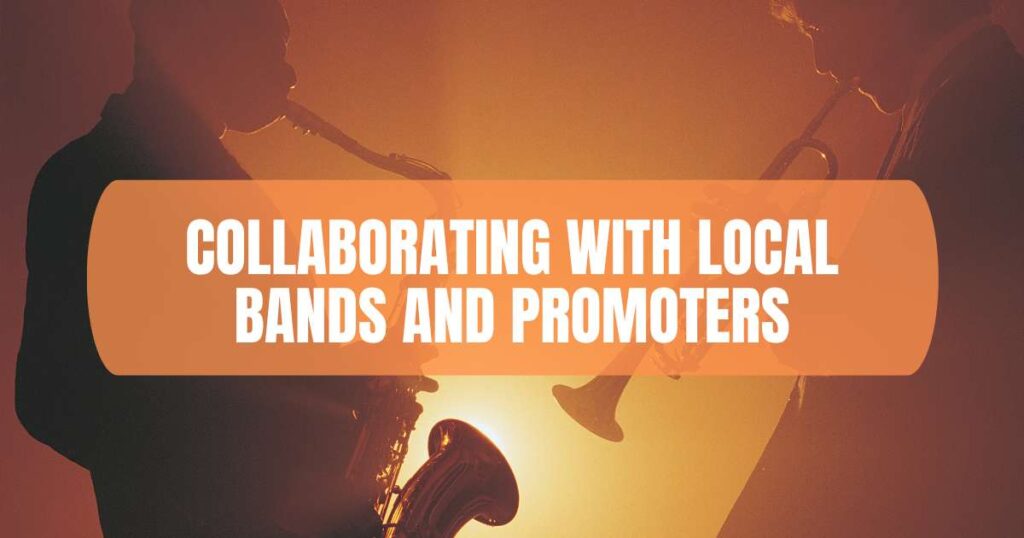
Building relationships with local artists
Connecting with local artists can be a game-changer for musicians planning your tour without a tour manager. These partnerships help to create buzz within the scene and attract larger crowds, as audiences often trust recommendations from familiar voices.
Reaching out through social media or mutual contacts makes collaboration smoother—exchanging slots on shows or working together on promotion offers mutual benefits.
Collaborating with fellow artists isn’t competition; it’s community building.
Artists should attend live gigs when possible, chat face-to-face, and genuinely engage online rather than sending generic messages. They could also organise joint merch stalls in an online store or at venues during tours to share costs and boost income.
Working with promoters to maximise attendance
A good local promoter helps to fill venues and get the audience excited. Artists must clearly discuss expectations, venue capacity, target numbers and promotion strategy with promoters early on.
The brand of the artist matters here—promoters need an easy way to market musicians online or offline, using photos, song links and social media posts provided by performers themselves.
Artists can also offer incentives like shared revenue from ticket sales or merchandise profits. Avoid ‘pay-to-play’ agreements; instead choose fair terms that reward both parties if attendance is strong.
Putting a clear plan in place with local promoters boosts gig turnout—and gives everyone involved more reason to actively promote events within their network.
Budgeting and Raising Funds
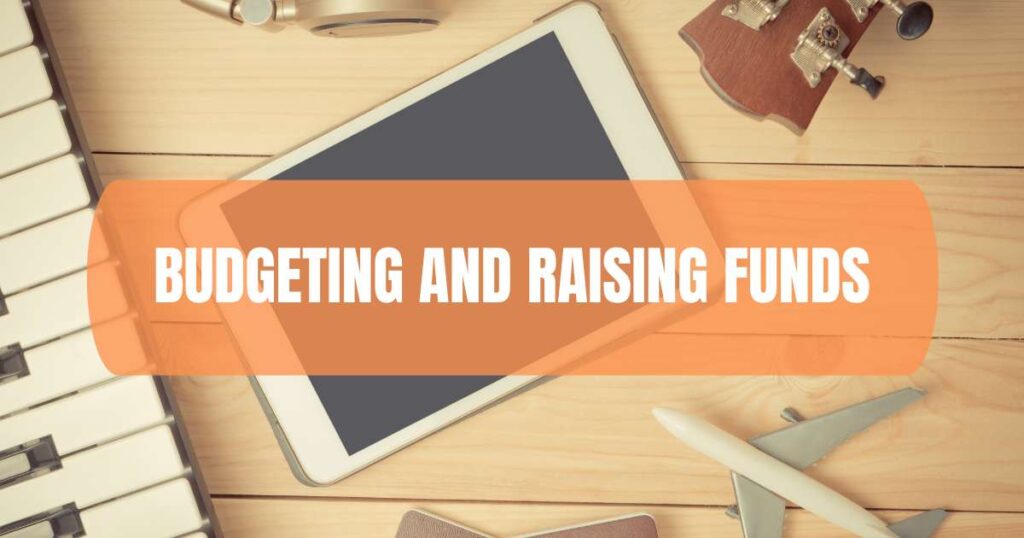
Estimating travel and accommodation costs
Estimating travel and accommodation costs is a key step musicians must take early. The right budget before you hit the road keeps stress levels down and helps avoid surprise expenses later.
Musicians should list each journey between tour locations, checking train and flight fares online for clear pricing data. For example, websites like Skyscanner or Trainline can show price comparisons quickly.
The same goes for lodging—using sites such as Airbnb or Booking.com helps artists spot affordable stays based on their needs.
imusician planners who learn how to plan effectively also set aside extra cash to cover unexpected issues that may arise during tours in May or other peak months. Creating room in budgets—at least an extra 10% above estimated costs—is smart financial planning practice used by seasoned touring bands everywhere.
If possible, artists should talk with fellow performers who’ve toured similar routes recently; simple discussions often highlight hidden expenses beginners might overlook otherwise.
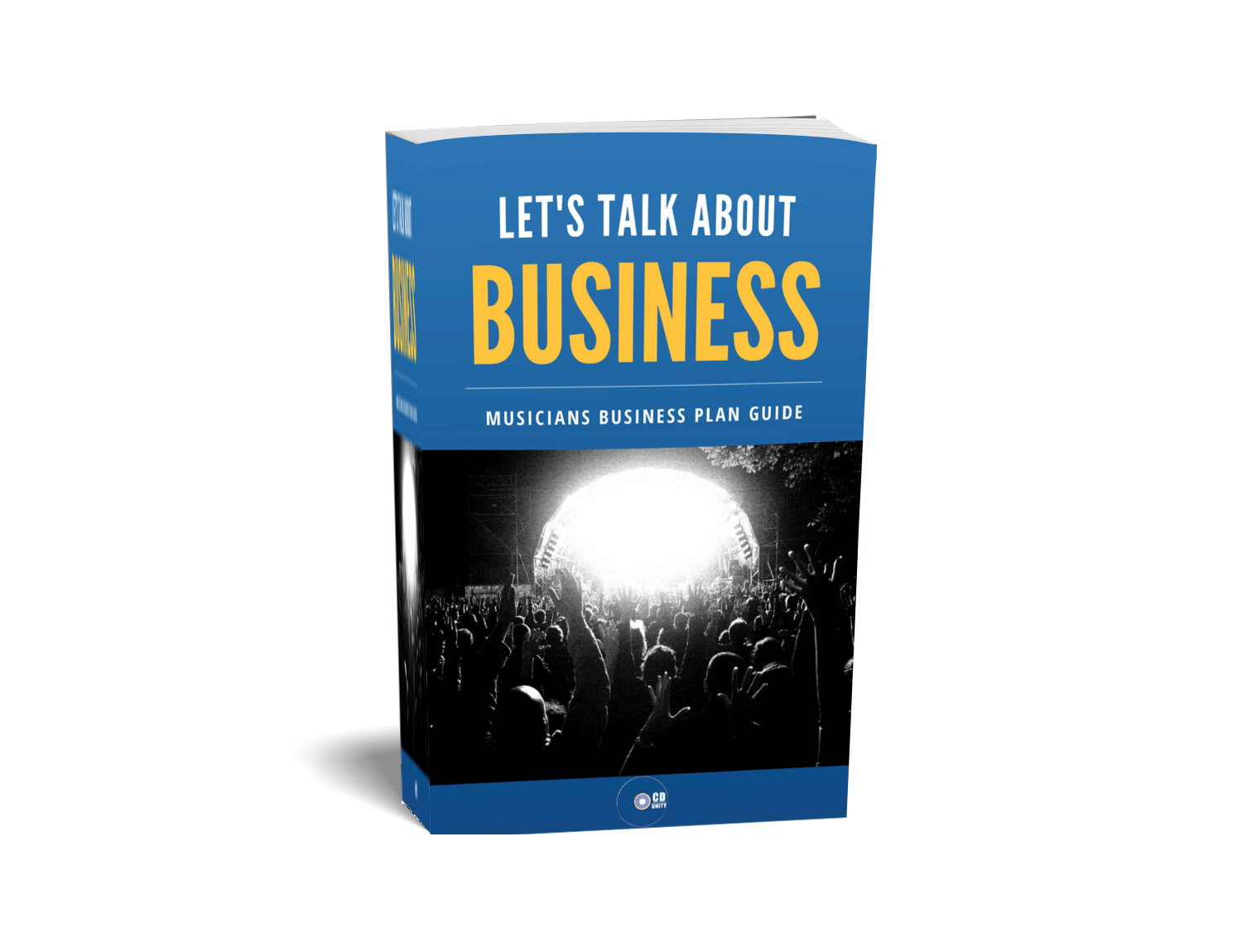
Selling merchandise and organising fundraising events
Selling merchandise helps musicians cover tour expenses and connects fans with the band’s identity. Creative items like limited-edition shirts, posters or stickers often sell well and boost fan engagement—especially when promoted online.
Musicians may use social media to preview merch designs, offer exclusive discounts or announce pop-up sales at concert venues.
Organising fundraising events also provides valuable income for a DIY tour. Local concerts or acoustic sessions held before hitting the road bring in funds while growing anticipation.
Crowdfunding campaigns through platforms such as Kickstarter can gather further support from enthusiastic fans who want their favourite acts performing live nearby.
Arranging Travel and Accommodation
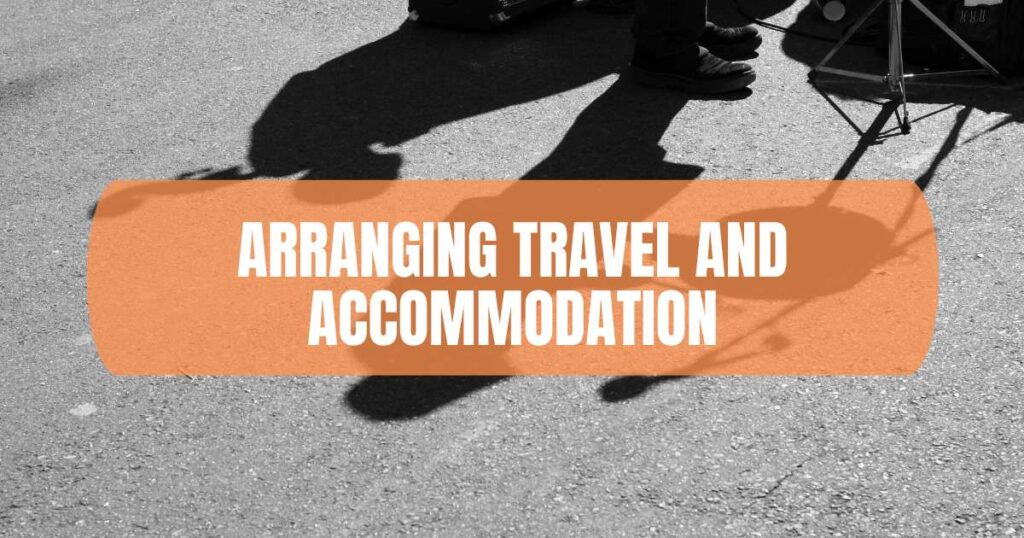
Securing reliable transportation
Securing reliable transportation plays a key role in your tour planning. Musicians should first decide if they want to rent or use their own vehicle, checking costs and reliability carefully.
Hidden expenses like insurance, petrol prices, tolls and parking fees can quickly add up—so factoring these into the budget is essential for keeping overall spending down. Booking transport early helps bands avoid high last-minute charges or limited vehicle options that may affect the comfort of long journeys.
Bands must also consider equipment safety when picking travel arrangements for their tour in May—or any other busy touring month—as lost or damaged gear affects performance quality sharply.
Using vehicles with secure storage spaces or adding tracking devices on instruments provides extra peace of mind during rest stops and overnight stays. Careful choices reduce risks significantly and ensure smooth travels between venues—essential for musicians aiming to perform at their best throughout the entire tour schedule.
Booking affordable places to stay
Tour costs may add up quickly, but musicians can save money with some smart planning. Budget-friendly places like hostels or guesthouses offer cheaper rates than hotels and often cater specifically to touring bands—sometimes even providing spaces to store gear safely.
Websites such as Airbnb, Hostelworld, and Booking.com help artists find good deals by comparing prices easily on one platform.
Performers should consider staying with friends, family members, or fellow musicians along the tour route. Sites like Couchsurfing connect travellers with local hosts willing to provide a comfortable place at no cost.
Touring this way helps keep expenses down—especially for indie groups whose budgets for the tour may be limited—and builds valuable connections in each city visited.
Promoting Your Tour Effectively
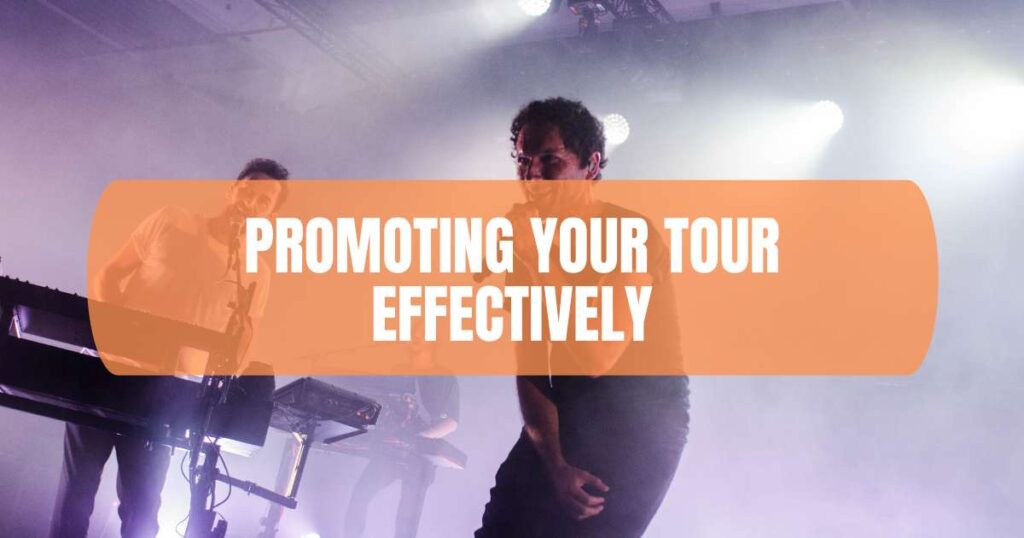
Creating a strong online presence
Creating an effective online presence helps musicians connect directly with fans and increase tour attendance. Musicians can set up a clear, professional website that lists upcoming gigs, shares latest music tracks and offers easy ticket purchase links for each concert.
Keeping this site updated often—with news, fresh photos from recent live performances or video clips of rehearsals—makes visitors keen to return.
Social media channels are also key for promoting tours. Artists should actively post engaging content across platforms like Instagram, Facebook and TikTok; quick behind-the-scenes videos or fun updates about the road life help attract interest in future shows.
Cross-posting events using location-specific hashtags boosts local visibility and draws bigger crowds at venues on performance nights.
Using social media and local marketing
Social media helps musicians promote DIY tours without a booking agent. Posts with clear visuals such as flyers, concert photos and short video clips attract attention on platforms like Instagram and Facebook.
Regular updates build excitement before the dates arrive, while tagging venues or local artists expands audience reach.
Local marketing plays an equally important role alongside online promotion. Putting up eye-catching posters in pubs, music venues and cafés boosts local awareness quickly. Musicians can also contact community radio stations, blogs or newspapers for brief interviews to gain exposure among residents who may not follow their work online.
Preparing for Live Performances
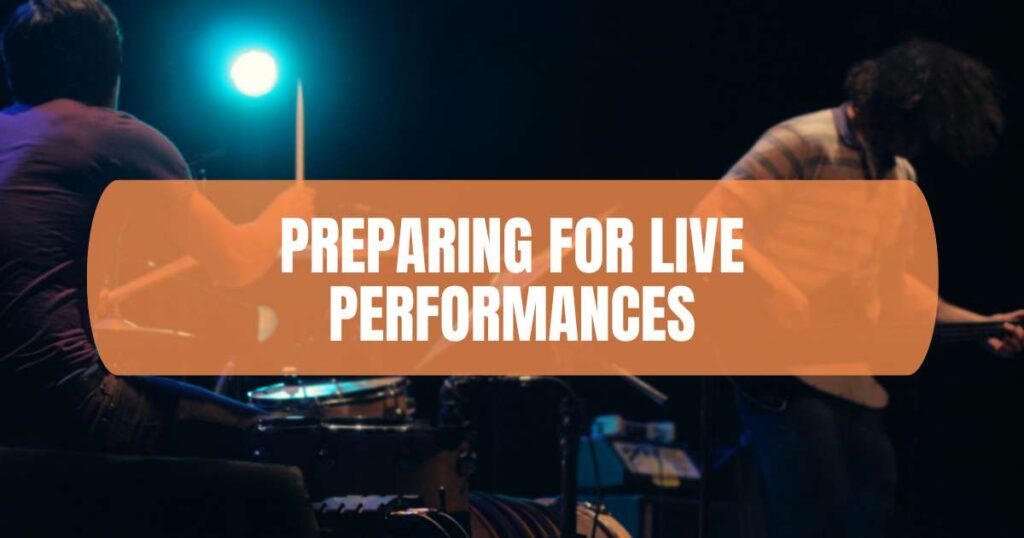
Optimising your setlist and gear
Musicians should arrange their setlist to keep the audience engaged throughout the show. Placing upbeat or popular tracks at key moments boosts crowd excitement and interest—such as opening with high-energy songs, then mixing slower tunes carefully between lively numbers.
Testing different song orders in rehearsals helps bands gauge which sequence flows naturally and feels best live.
Checking gear well before touring is equally crucial. Musicians need reliable instruments, cables, amplifiers and spare parts on hand for each gig. Doing a quick run-through of all equipment ensures nothing breaks down mid-show.
Clearly labelling personal items speeds up setting up stage gear smoothly at each venue without confusion or wasted time.
Rehearsing for consistency and confidence
Regular, focused rehearsals help artists perform with consistency on tour. Building a setlist that flows well and matches the mood of each venue matters greatly; practising it in order, from start to finish, lets bands identify weak areas clearly.
Bands should rehearse as if performing live, including transitions, gear setups and quick instrument changes.
Recording practice sessions on video or audio helps musicians spot mistakes easily—timing issues or wrong notes—and fix them quickly. Practised moves become second-nature over many repeated runs; this gives performers confidence and control during an actual show.
Confidence grows naturally through preparation: details like stage positions, microphone technique and clear signals between band members all improve after steady rehearsal routines.
Staying Adaptable During the Tour
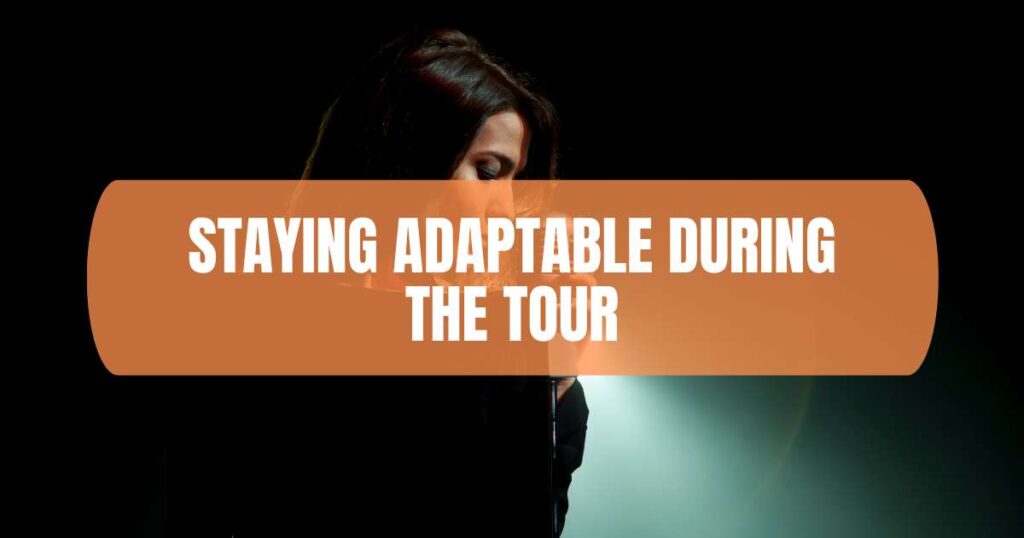
Managing unexpected challenges
Every tour has surprises, and musicians should expect that some aspect of a DIY tour might go off-plan. Venues can cancel gigs last minute, transport could break down, or bands may fall ill—these events frequently happen.
Having backup venue contacts, keeping emergency funds on hand for sudden costs, and knowing local help for quick repair services are useful ways to cope with these issues.
A flexible attitude helps manage stress and stay positive through tough moments. If a session is cancelled or delayed due to technical problems—use that time productively by connecting with fans online in live streams or casual interactions.
This openness fosters audience loyalty despite changes in schedule or setbacks during the DIY tour journey.
Maintaining a positive mindset
A positive mindset helps musicians manage tour setbacks and stay focused on their goals. Challenges such as cancelled shows, low turnouts or technical issues are part of touring life—accepting this fact can save artists from frustration.
Approaching problems calmly allows clearer thinking, faster solutions and less stress.
Daily habits like short walks, listening to favourite playlists or simply chatting with friends help ease the pressures of a DIY tour. Touring is tiring for both body and mind, so caring for mental health matters just as much as physical rest does.
Small breaks during busy schedules help re-centre focus and energy levels, keeping morale high along the way.
All in All
Planning a DIY tour without an agent is achievable with careful planning and smart moves. Musicians boost their success by clearly setting goals, booking suitable venues early, and teaming up with local acts to attract crowds.
Staying flexible helps artists handle unexpected changes on the road while sharp budgeting keeps money worries away. Above all, preparation paired with adaptability lets musicians take control of their touring path and build lasting connections wherever they perform.
Cheers, Josh
The Big Lists Of Music Promo Contacts
Includes PR companies, UK promoters & UK booking agents. Everything you need to put your band on the map.
Access Lists
Hello, I’m Josh, and I’ve been honing my graphic design skills for almost 15 years now, catering to the needs of bands and businesses alike. What really fascinates me is the business aspect of the music industry. In addition to my design work, I also happen to play the Hammond organ, and I strive to share my knowledge through helpful articles that I write exclusively for you all!

